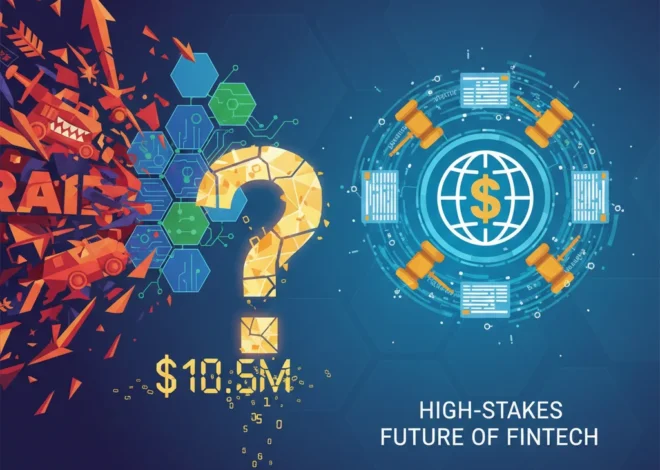
From Fintech Star to Shadow Spymaster: Jan Marsalek and the Multibillion-Dollar Criminal Underworld
The spectacular collapse of Wirecard in 2020 sent shockwaves through the global finance and fintech sectors. Once a darling of the German stock market and a symbol of European technological prowess, the payments company imploded in a cloud of accounting fraud, leaving a €1.9 billion hole in its balance sheet and a trail of shattered investor confidence. At the heart of this enigma was its COO, Jan Marsalek—a charismatic, shadowy figure who vanished into thin air as the company crumbled.
For years, the world has speculated about his whereabouts. Was he merely a white-collar criminal hiding from justice? Or was he something more? A recent, explosive investigation by the Financial Times has begun to answer that question, and the reality is far more sinister than most imagined. Marsalek is now linked to a sprawling, multibillion-dollar money laundering network, a shadow banking system that serves criminals, sanctioned oligarchs, and even Russian intelligence services. This isn’t just the epilogue to the Wirecard story; it’s the prologue to a much darker narrative about the intersection of financial technology, global crime, and espionage.
A Ghost from the Past: The Wirecard Implosion
To understand the gravity of these new revelations, we must first revisit the scene of the crime. Wirecard AG was, for a time, the pinnacle of German fintech innovation. It processed payments for countless merchants and businesses, and its soaring stock price saw it replace Commerzbank in Germany’s prestigious DAX 30 index. Investors and analysts alike were captivated by its seemingly unstoppable growth.
Yet, behind the curtain of impressive earnings reports lay a sophisticated deception. The company’s success was built on a foundation of lies, with a significant portion of its reported profits being entirely fabricated. The €1.9 billion that went “missing” likely never existed. When the fraud was exposed in June 2020, the company filed for insolvency, its CEO was arrested, and its stock became worthless overnight. Jan Marsalek, the enigmatic COO who managed the company’s Asian operations where the fraud was centered, disappeared. He remains one of the most wanted fugitives in the world.
The European Paradox: Why Stronger Nations Might Build a Stronger Union
Unveiling the Shadow System: The Smart and TGR Network
The latest investigation peels back a new layer of Marsalek’s operations, connecting him to a clandestine financial network known as Smart and TGR (an acronym for Tornado and Golden Ring). According to the years-long probe detailed by the Financial Times, this network is not a typical money laundering operation. It’s a full-fledged parallel financial system designed to move vast sums of illicit money with speed and anonymity, completely bypassing traditional regulatory oversight.
This “shadow bank” allegedly caters to a diverse and dangerous clientele:
- Organized crime syndicates.
- State-sponsored hacking groups.
- Sanctioned individuals and entities, particularly from Russia.
- Russian intelligence agencies like the GRU and SVR.
The network’s primary tool is cryptocurrency, particularly the stablecoin Tether (USDT), which is pegged to the US dollar. By converting dirty cash into crypto, TGR can move billions across borders in minutes, far from the prying eyes of conventional banking authorities. This fusion of old-school criminal tactics with cutting-edge blockchain technology represents a formidable challenge to global law enforcement.
The Mechanics of a Global Laundromat
The TGR network’s methodology is a masterclass in modern money laundering, blending digital techniques with traditional trade-based schemes. The process is complex, but its core components are designed to break the financial trail at every step.
Here is a breakdown of how this shadow financial system operates, compared to the regulated, traditional banking system it seeks to evade:
| Feature | Traditional Banking System | TGR Shadow Network |
|---|---|---|
| Primary Medium | Fiat currencies (USD, EUR, etc.) within the SWIFT system. | Cryptocurrencies (primarily Tether – USDT) and cash. |
| Anonymity | Low. Governed by strict Know Your Customer (KYC) and Anti-Money Laundering (AML) laws. | High. Uses anonymous wallets, shell companies, and crypto mixers to obscure identities. |
| Transaction Speed | Can take days for international transfers, subject to compliance checks. | Near-instantaneous, 24/7 global transfers via the blockchain. |
| Key Infrastructure | Regulated banks, payment processors, central banks. | Crypto exchanges, shell corporations, front companies (e.g., luxury goods trading), and hawala-style brokers. |
| Oversight | Heavy regulation by government bodies (e.g., FinCEN, BaFin) and international task forces (FATF). | Operates outside of formal regulation, exploiting jurisdictional gaps. |
Investigators believe the network has laundered tens of billions of dollars using these methods. Marsalek was allegedly not just a client of this network but a key figure within it, using its services to funnel money for Wirecard’s fraudulent activities and, more disturbingly, for his suspected work with Russian intelligence.
Ghosts of Economic Past: Why a 1970s Socialist Blueprint Still Haunts Modern Finance
The Geopolitical Nexus: Where Corporate Crime Meets Espionage
This is where the story transcends a simple case of financial fraud and enters the murky world of geopolitics. The investigation suggests that Marsalek’s ties to Russian intelligence are deep and long-standing. He is believed to have used the TGR network to finance covert operations, pay informants, and move funds for Russia’s security services.
This connection recasts the entire Wirecard saga. Was the company’s collapse merely the result of corporate greed, or was Wirecard itself a tool—a payment processing company with access to sensitive financial data—that was compromised and exploited by a foreign intelligence service? The evidence suggests Marsalek was playing a double game, serving as both a C-suite executive and an intelligence asset. This link between a major public company on the German stock market and Russian spy agencies is a national security nightmare for Western governments.
The use of such shadow financial systems is a critical tool for sanctioned states looking to blunt the impact of Western economic pressure. By leveraging the decentralized and pseudonymous nature of crypto, they can fund operations, procure goods, and maintain financial flows outside the reach of the US Treasury and its allies. The Marsalek-TGR connection is a prime example of this new front in the global economy—a battle being fought not with armies, but with algorithms and anonymous wallets.
Lessons for Investors, Regulators, and the Future of Finance
The ongoing revelations from the Marsalek investigation offer stark warnings and critical lessons for anyone involved in the world of investing, trading, and financial technology.
For Investors and Business Leaders: The Wirecard story is the ultimate cautionary tale about the dangers of prioritizing hype over fundamentals. The due diligence process must go deeper than financial statements, especially in complex and opaque industries like fintech. Understanding a company’s leadership, its corporate culture, and the plausibility of its business model is paramount. The allure of a disruptive tech stock can blind even the most seasoned investors to red flags hiding in plain sight.
For Regulators: This case highlights the glaring inadequacy of 20th-century regulations in a 21st-century financial landscape. National regulators operating in silos are no match for a decentralized, global criminal network that exploits jurisdictional arbitrage. A new paradigm of international cooperation and technologically sophisticated surveillance is required to police the crypto-economy effectively. The challenge is immense: how to foster the positive innovation of blockchain while closing the loopholes that allow illicit actors to thrive.
For the Fintech Industry: The scandal is a call to action. The “move fast and break things” ethos is untenable when it comes to people’s money and the integrity of the financial system. Robust compliance, ethical leadership, and a proactive approach to fighting financial crime must be baked into the DNA of every fintech startup. The long-term health and public trust in the industry depend on it. A failure to self-police will inevitably lead to draconian regulations that could stifle innovation for everyone. The investigation into Marsalek’s activities serves as a potent reminder of the stakes.
The Paradox of India's Growth: Why a Booming Economy is Begging for a Spending Spree
An Unfolding Saga
The story of Jan Marsalek is far from over. He remains at large, a ghost in a global machine of illicit finance and espionage. The investigation into the TGR network continues to unravel a complex web that connects the corporate boardrooms of Europe to the clandestine operations of the Kremlin. What began as an accounting scandal has morphed into a geopolitical thriller, exposing the profound vulnerabilities at the heart of our increasingly digital world.
This saga serves as a critical reminder that in the modern economy, the greatest risks often lie hidden in plain sight, wrapped in the promise of innovation and disruption. As the full picture of Marsalek’s shadow empire comes into focus, it will force a global reckoning on how we regulate technology, combat financial crime, and protect the integrity of our economic systems from those who seek to exploit them from the shadows.


